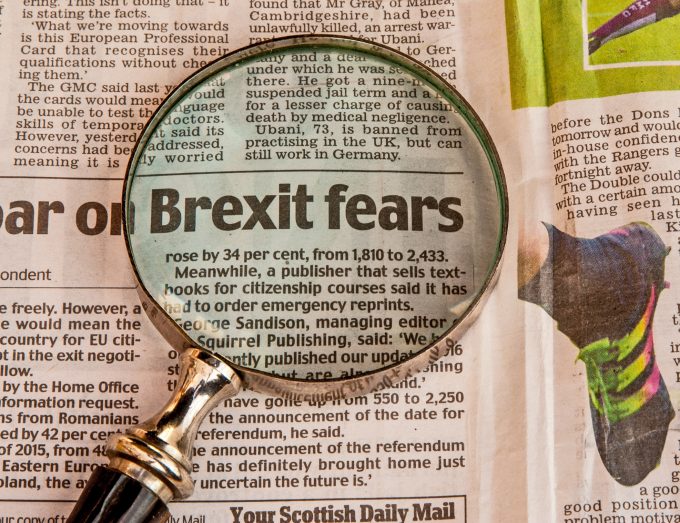Surprise meets Virgin Atlantic Cargo's 'bizarre' daily cargo flight to Brussels
Today’s decision by Virgin Atlantic Cargo to put on daily widebody cargo–only flights between London ...
AAPL: SHIFTING PRODUCTIONUPS: GIVING UP KNIN: INDIA FOCUSXOM: ANOTHER WARNING VW: GROWING STRESSBA: OVERSUBSCRIBED AND UPSIZEDF: PRESSED ON INVENTORY TRENDSF: INVENTORY ON THE RADARF: CEO ON RECORD BA: CAPITAL RAISING EXERCISEXPO: SAIA BOOSTDSV: UPGRADEBA: ANOTHER JUMBO FUNDRAISINGXPO: SAIA READ-ACROSSHLAG: BOUYANT BUSINESS
AAPL: SHIFTING PRODUCTIONUPS: GIVING UP KNIN: INDIA FOCUSXOM: ANOTHER WARNING VW: GROWING STRESSBA: OVERSUBSCRIBED AND UPSIZEDF: PRESSED ON INVENTORY TRENDSF: INVENTORY ON THE RADARF: CEO ON RECORD BA: CAPITAL RAISING EXERCISEXPO: SAIA BOOSTDSV: UPGRADEBA: ANOTHER JUMBO FUNDRAISINGXPO: SAIA READ-ACROSSHLAG: BOUYANT BUSINESS

The ramifications of the UK vote to leave the EU range from “a few years of rough seas” to “preparing the ship for storm conditions”, according to speakers at a Supply Chain Academy conference last week.
Since the referendum result on 24 June, the nation appears to be in “wait and see mode” on Brexit’s implications, according to speakers and delegates.
Indeed, the two months since the decision was likened to a “phoney war”, as nothing has changed. The UK will remain an EU member until its government invokes Article 50 of the Lisbon Treaty, which triggers a two-year period of exit negotiations.
A feeling of being in limbo came through in a survey of key clients by conference sponsor Uniserve. Many respondents said they were waiting for the government’s next move and “did not want to react too early”.
To date the one significant impact from the Brexit vote has been the fall in the value of sterling against most major currencies, something those in Uniserve’s survey viewed as positive, in terms of increased export sales.
However, they were concerned about the increased cost of imported goods, which would push up prices and could spark inflation.
Panellists Anthony Robinson, from the CBI, and Suren Thiru, of the British Chambers of Commerce, said the UK government was “listening intently” to the views of their organisations’ members; the message being to urgently implement a post-Brexit plan for UK business.
Mr Thiru said some progress had been made in recruiting trade negotiators, given that the EU has some 800 negotiators to the UK’s 50 or so, but it was not proving easy to find the right individuals.
Mr Robinson reminded the conference that, despite several nations stating that they wanted to start trade talks with the UK, as long as it remains an EU member no bilateral deals could be done.
One of the initial consequences of the vote to leave the EU was that many firms had halted recruitment drives, citing an uncertain economic outlook. Simon Manasseh, MD of Linde Material Handling East, said his company had placed an immediate block on recruitment, adding that his employees had needed considerable reassurance and counselling after the vote over fears for their future.
The position on tax and customs is also a major concern for UK shippers and forwarders.
Terry Clear, MD of Customs Insights, outlined possible EU tariff scenarios, but said UK companies already credited with AEO status within the EU would automatically be granted the UK equivalent, post-Brexit.
Perry Jackson, general manager at Mitsubishi Electric, commented that investment and expenditure plans would continuously be reviewed until there was greater clarity in terms of the new economic landscape, although he stressed that whatever course the company decided to plot as the nature of Britain’s new relationship with Europe emerges, it would still plan for growth.
He added, however, that “timings and priorities had changed” as a result of the vote, but it was only one of the drivers in a general refocusing of the company to meet forthcoming regulatory requirements.
Comment on this article